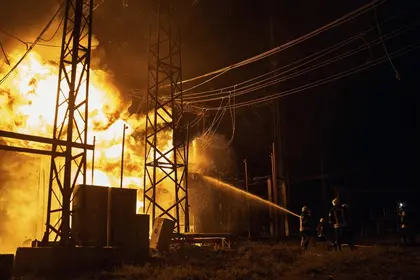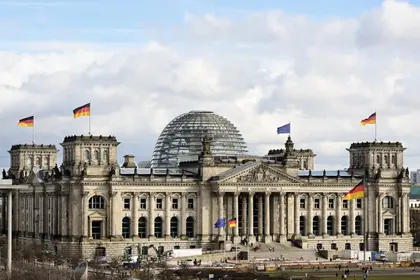Russian missile strikes on energy infrastructure in Ukraine constituted a “war crime”, German Justice Minister Marco Buschmann said Tuesday, Nov. 29, after hosting talks with his G7 counterparts.
A Russian campaign of missile strikes has severely damaged Ukraine’s energy infrastructure and plunged millions into darkness as the country endures the first snows and chill winds of winter.
JOIN US ON TELEGRAM
Follow our coverage of the war on the @Kyivpost_official.
“Systematic destruction of the heating and electricity supply” ahead of the coldest months of the year was a “terrible war crime”, Buschmann told reporters.
- Get the latest war in ukraine update from the Kyiv Post's daily news reports published today.
- See the most recently published Ukraine news reports from today.
“Many people will fall victim to the winter,” Buschmann said after the first meeting of G7 justice ministers, which was attended by the Ukrainian justice minister and prosecutor general.
“War criminals should not and must not be allowed to feel safe anywhere,” Buschmann said.
The members of the G7 group of industrial democracies had to “cooperate better together to combat war crimes”, he said.
Buschmann underlined that he was “certain that at the end, we will see war crimes cases at the International Criminal Court against senior Russian leadership too”.
Ukrainian investigators have already documented “almost 50,000 war crime cases” since the start of the invasion in February, Buschmann said.
The country’s prosecutor general Andriy Kostin repeated a call made by Ukrainian officials for the establishment of a special tribunal to prosecute Russia for the “crime of aggression”.

US Freeze on Aid Puts Ukrainian Lives at Risk – Human Rights Watch
Kostin highlighted “legal limitations” at the ICC that constrained it to “war crimes, crimes against humanity and crime of genocide”.
“If there was no aggression there would be no other war crimes committed,” Kostin said.
You can also highlight the text and press Ctrl + Enter










